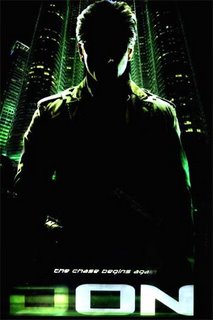One year since this blog started
Time to take a break ...
Will be back later ...
India: a land of many mysteries and unending marvels. Be a part of this journey of wonderment to discover and savor the delights of this land. This blog began as a dedication to the listeners of my weekly radio show- 'TARAANA' on KEOS 89.1 FM at College Station and Bryan, TX between Nov 2003 to Dec 2006.
 September 11th 2006 has a special significance. It not only marks the fifth anniversary of the attacks on New York and Washington, it also marks 100 years to the day that Mahatma Gandhi launched the modern nonviolent resistance movement. The non-vilolent movement known as 'Satyagraha' is made of two words- 'Satya' and 'Agraha' means 'Pursuit of truth' or 'Endeavour in Truth'.
September 11th 2006 has a special significance. It not only marks the fifth anniversary of the attacks on New York and Washington, it also marks 100 years to the day that Mahatma Gandhi launched the modern nonviolent resistance movement. The non-vilolent movement known as 'Satyagraha' is made of two words- 'Satya' and 'Agraha' means 'Pursuit of truth' or 'Endeavour in Truth'.With so much violence and hatred plaguing the world even today, Gandhiji's message still stands true. His simple technique goes beyond religion, culture and political boundaries. It is so basic to human nature that it is nothing but the truth itself.
Gandhiji noted:
He also pointed out:
On September 11th, 1906, speaking before 3,000 Indians gathered at a theater in Johannesburg, the Mahatma organized a strategy of nonviolent resistance to oppose racist policies in South Africa. Satyagraha was born and since then, it has been adopted by many around the world to resist social injustice and oppression.
Mahatma Gandhi used it in India to lead the resistance against the British. The Reverend Martin Luther King used it in the United States to oppose segregation and Nelson Mandela used it in South Africa to end apartheid.
Please listen to a recent interview on Democracy Now with Arun Gandhi, Mahatma Gandhi's grandson [here].
More information on democracynow.org and wikipedia.
Additional comment based on a reader's feedback: Perhaps it is important to mention that the 1893 session of the Parliament of the World's Religions took place between Sep 11 and Sep 18 in Chicago. It was here that the 7000 odd audience greeted Swami Vivekananda with a 3 minute standing applause stirred by his historic speech. Read more here.[Link]
We talked about the Indian National Anthem- Jana Gana Mana recently on the occasion of our Independence Day. And we spoke a bit about Vande Mataram on our radio show. Vande Mataram, the national song of India is in the news again for two reasons.
Of course! Music from Don opens the show tonight!
"Don ke dushman ki sabse badi galti hai ki woh don ka dushman hai. "
 The New- Don (2006)
The New- Don (2006) Superstar Amitabh Bachchan appeared in a double role in this action film. There was the sexy and glamorous tom-boyish Zeenat Aman and a lovely number 'Yeh mera dil pyaar ka deewana' by Helen.
Superstar Amitabh Bachchan appeared in a double role in this action film. There was the sexy and glamorous tom-boyish Zeenat Aman and a lovely number 'Yeh mera dil pyaar ka deewana' by Helen.